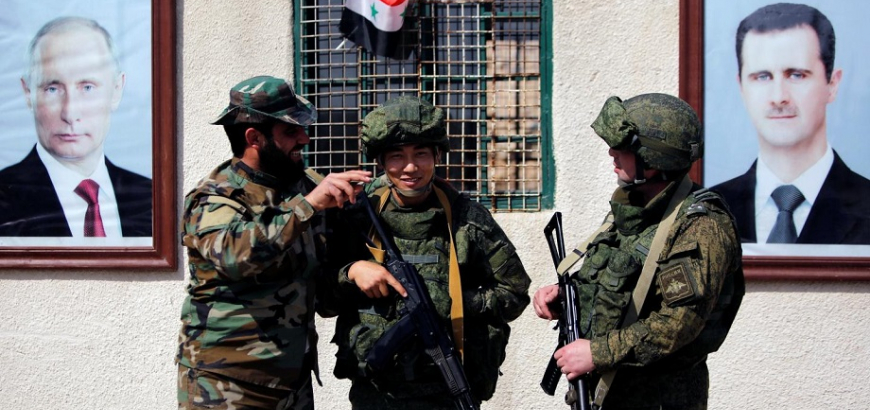On Monday, the Russian ambassador to Israel, Anatoly Viktorov, said that his country would try to persuade Iran to remove its forces from Syria “but Moscow cannot force that on Iran.”
The statements came during an interview that Viktorov held with Israel’s Channel 10 (non-government) and published on the channel’s website.
The ambassador said that Russian President Vladimir Putin’s message to the Israel’s Prime Minister Benjamin Netanyahu during their meeting in Moscow on Jul. 11, 2018, was that “Russia will heed Israel’s security interests in any future settlement in Syria.”
He said that “Russia will ensure that any future agreement will stipulate that the official Syrian army be the only force present on the Syrian side of the Golan Heights.” He added: “We will ensure there are no Iranian forces or members of Lebanon’s Hezbollah in the Golan area on the Syrian side.”
The Russian ambassador said that Netanyahu’s repeated request that Iranian forces and their allies needed to leave Syria was “unrealistic” and said that “They are playing a very, very important role in our common and joint effort to eliminate terrorists in Syria.”
The ambassador went on to say that “at the current stage we consider the Israeli request to expel foreign forces from Syria to be unrealistic.” He said that “the Iranian presence in Syria is totally legitimate in accordance with the principles of the United Nations.”
In response to a question about “the Russian position on airstrikes that are attributed to Israel in Syria and which have struck Iranian positions or targets of Tehran’s allies such as Hezbollah”, the ambassador said “we do not agree with every use of force by the Israeli government, but we cannot persuade Israel to behave in this or that way.”
He said that “it’s not up to Russia to give Israel freedom to this or that, or to prevent it.”
Netanyahu, has previously said that Israeli warplanes were committed to acting freely in Syria and carrying out strikes against Iran’s forces and positions, in addition to striking weapons shipments headed to Lebanon’s Hezbollah.
This article was translated and edited by The Syrian Observer. Responsibility for the information and views set out in this article lies entirely with the author.


